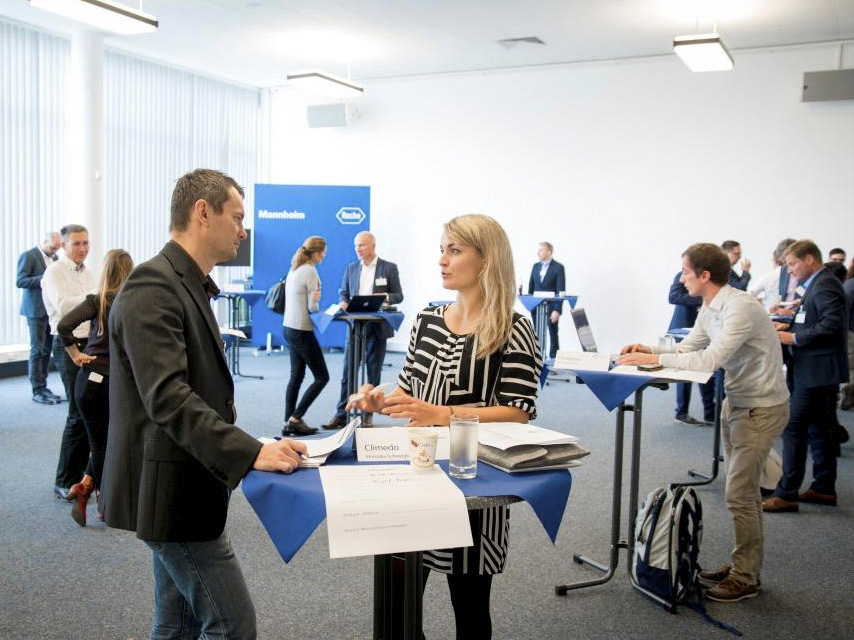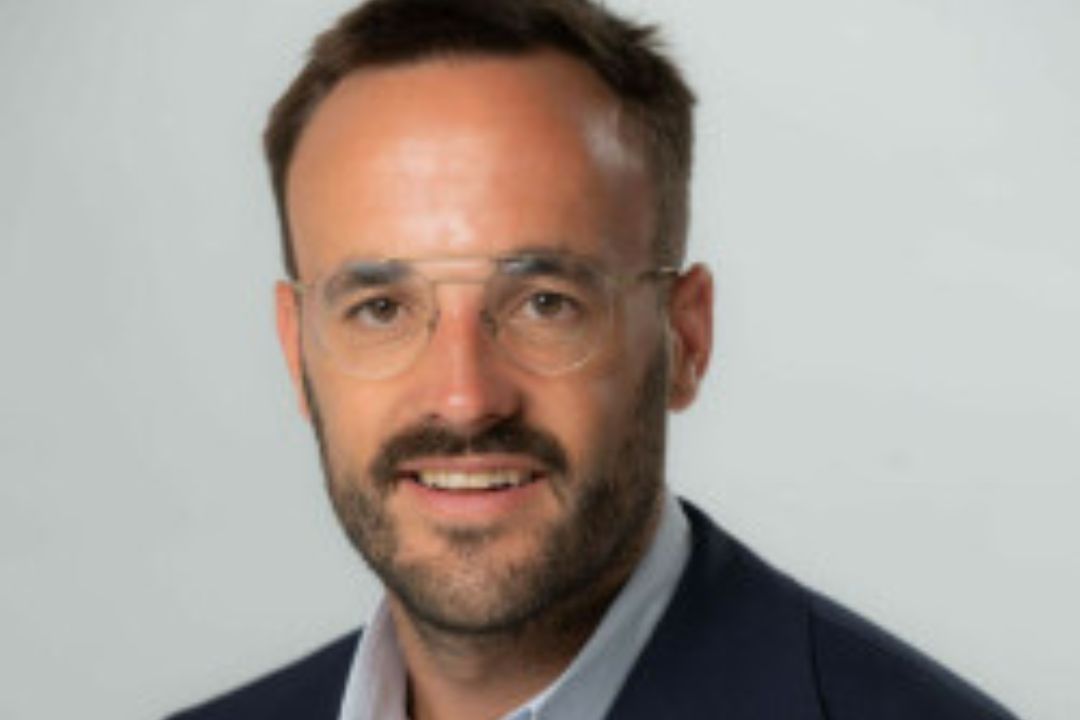15th July 2019
EIT Health Germany announces Headstart winners after 2nd evaluation cut-off date
EIT Health Germany will fund six promising start-ups with innovative solutions for healthcare and disease control. After the second evaluation cut-off date on 16th June 2017, the German Co-Location Center (CLC) of EIT Health announced six winners of the German EIT Health Headstart Programme 2017. 25 eligible project proposals have been received and external reviewers have evaluated the projects independently in the categories: Project Excellence; Commercialization Potential and Market Strategy; Project Impact.

The Headstart Programme provides fast-track project opportunities with a focus on German or Swiss micro and small enterprises (<50 employees), spin-offs and start-ups, funded to rapidly initiate their activities. With a funding of up to € 50,000 for a maximum of one year the grant supports the applicants in realizing next steps towards the market for innovative products and services. In addition, the successful applicants get access to a European network of world leading medtech, biotech, pharma and IT companies as well as world class research organizations in healthcare and top universities. They will benefit from unique services in crucial areas such as clinical validation (living labs and test beds), market preparation and internationalization provided in EIT Health Accelerator programmes such as GoGlobal (MedTech and Digital) or Launchlab. The winners will get early access to the EIT Health Investors Network, which brings international investors together (VCs, Corporate VCs, Business Angels, Crowd Investors) in order to boost the winner’s business idea and to support the participants to increase their visibility across Europe.
Six promising projects or start-ups have been selected after the second evaluation cut-off date in 2017 which will be funded by EIT Health:
Project-Title: Smartbaseboards
Name of Organisation: nevisQ GmbH
Website: www.nevisq.com
Brief description: nevisQ develops an intelligent sensor system for discrete room monitoring in nursing care facilities in order to relieve the nursing staff and to increase the quality of care. The solution is based on infrared sensor strips, which create a two-dimensional image of a room and recognize objects as well as persons in the room. Machine learning algorithms are used to interpret movements and situations so that for example falls can be clearly identified. The infrared sensor strips can be installed in or above the basebaords a few centimeters over the ground, making them very discreet and easy to install. As soon as the sensor system detects a critical situation of a nursing home resident, such as a fall, the nursing staff is immediately notified to help the fallen person. The advantage here is that the person in need of care does not have to carry a device, such as an emergency button, or has to call actively for help himself. The solution gives nursing homes a competitive advantage and can therefore also increase profitability. At the same time, the nursing homes and the health insurance companies can save costs, for example by a smaller number of falls with serious consequences and a more efficient care work with fewer sick days of the workforce.
Project Title: HealthLab MRN 2025
Name of Organisation: OptiMedis AG
Website: www.optimedis.de
Brief description: Together with OM (manager of “Gesundes Kinzigtal”(GK), a successfully operating population-based integrated care system (ICS) in Germany based on a shared benefits contract with health insurances, and of “Gesundheit für Billstedt/Horn”, another ICS, operating in a deprived municipal neighborhood) MRN is planning to implement a digitally integrated care management model for its 2.4 mil. inhabitants. For this, the area will be split into local regions of 100-150.000 inhabitants. Within each region local providers and patients will be connected using an electronic health record (eHR), the population will be activated and the care provision will be managed inter-sectoral and evidence based.
On the metropolitan level these regions will be linked together and provided with central knowledge and services. The overall goal is to establish a highly qualitative and efficient prevention and care provision for the entire metropolitan area and thus increase its attractiveness and position it as a leading European health region for innovation and a test bed for medical research and implementation. The Project would be Germany’s first area-covering population-oriented integrated care of its size.
Project Title: PEAIHD
Name of Organisation: Avergen Pharmaceuticals GmbH
Website: www.avergen.com
Brief description: Avergen Pharmaceuticals has identified small molecules that inhibit aggregation of mutated huntingtin (mHtt) at concentrations 400 nM in a cell-based Huntington’s disease (HD) model. Previously, several research groups have shown in mouse models that mHtt aggregation plays a pivotal role in HD. HD is a fatal autosomal dominant orphan drug indication with no disease modifying therapies available. In this in vivo efficacy study, Avergen Pharmaceuticals wants to demonstrate that the early lead compound can inhibit the aggregation of mutated huntingtin and that the inhibition of aggregation consecutively leads to an improvement of motor symptoms in the R6/2 Huntington’s disease model. This proof of efficacy of the early lead compound will be the bases to acquire series A investment and build a team to progress the project further.
Project Title: neolexon for Kids
Name of Organisation: neolexon UG i. G.
Website: www.neolexon.de
Brief description: neolexon is bringing digitization to the domain of Speech and Language Therapy (SLT) in order to support therapists and patients. SLT aims to improve speech and language abilities, which are either lost due to a brain injury (called Aphasia) or not sufficiently developed as in the case of children. So far, SLT is severely dependent on analogue methods involving picture cards and memory games, which have a variety of disadvantages. neolexon aims to digitize this ecosystem in the form of tablet based apps supported by a handcrafted and medically reliable database. Using the neolexon system, therapists can easily create individual training materials out of a large set of words together with SLT relevant linguistic properties. The training materials are sent to target group-specific training apps in order to enable unlimited training at home. neolexon has so far built a comprehensive German word database and apps for adults effected with Aphasia. In its next steps, neolexon is building apps catering to children thereby establishing an extensive and commercially viable digital SLT solution.
Project Title: Implementation of an IT infrastructure for improved medical research
Name of Organisation: Climedo Health GmbH
Website: www.climedo.de
Brief description: Climedo supports the research activity at hospitals by providing doctors with an intelligent software solution to efficiently collect, archive and visualize clinical and biomedical data throughout their research process. Current inefficient management of medical research data in university hospitals, mainly caused by a lack of IT infrastructure, leads to massive losses in quality, time and money. European hospitals need to be fully equipped with smart systems in order to better support doctors in their difficult judgements regarding the interpretation of medical research outcomes. This will ultimately lead to more effective therapies. In the scope of the EIT Health grant, Climedo will conduct a customer-centric software development project at a well-known German university hospital to enable them conduct their research projects more effectively and efficiently.
Project Title: Evolution of the Cancer Drug Efficacy CTR-Test® to Promote International Commercialization
Name of Organisation: TherapySelect Dr. Frank Kischkel
Website: www.therapyselect.de
Brief description: Only 25% of cancer patients respond to their applied chemotherapy. To address this problem the CTR-Test (Chemotherapy-Resistance-Test) was developed. The test is a laboratory derived test and can measure efficacy of chemotherapeutic drugs on living tumor samples to find the best chemotherapy option for an individual cancer patient. Currently the test is commercially and exclusively offered by TherapySelect.
The technology is ready to be out-licensed to other laboratories, but the biggest obstacle for an international commercialization is the usage of radioactivity. Thus within this project the current radioactivity-using CTR-Test version is modified that no radioactivity is needed anymore. In addition the high comparability between the current and modified version is ensured to fulfill all legal requirements for commercialization by performing a direct side-by-side comparison of both versions analyzing patients’ tumor samples.
With this project more cancer patients in Europe and worldwide can benefit from better treatment outcomes, resulting in prolonged life and better quality of life by reducing side effects of ineffective therapies. Reducing ineffective therapies also helps to reduce costs in the healthcare system. Thus our project addresses future challenges of healthcare due to aging societies, demographic change and contributes to the promotion of healthy living, well-being and improvement of healthcare. Active aging is also supported because cancer patients are treated with a more effective therapy. This leads to a higher chance that they recover, stay progression free and do not suffer from limitations caused by their cancer.
The next chance for German or Swiss start-ups and SMEs to apply for the EIT Headstart funding will be in spring 2018.
The new Headstart call is expected to be published at the end of the year.
Europe's top health start-ups take centre stage: EIT Health Catapult winners are revealed at HLTH Europe

2025 Catapult programme winners announced.
Finding Europe’s next healthtech leaders: Insights from Antoine D’Hollander

Insights from Antoine D’Hollander, Capricorn Partners.
EIT Health supports 17 promising deep tech start-ups bridge the ‘Valley of Death’

Providing start-ups with the right support.